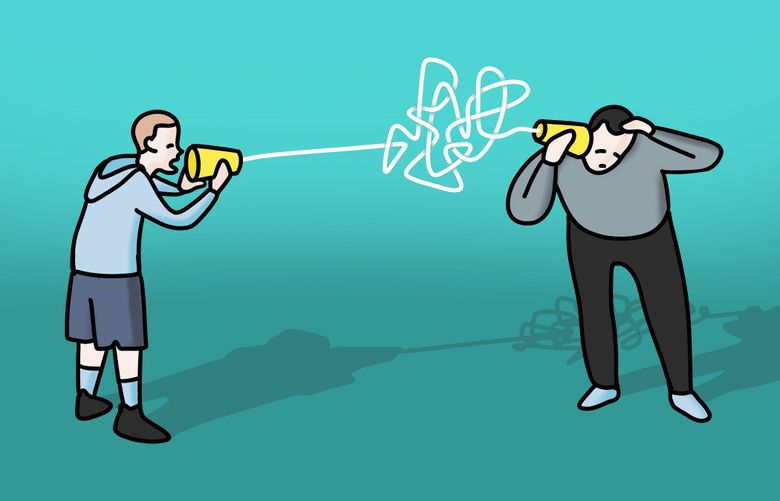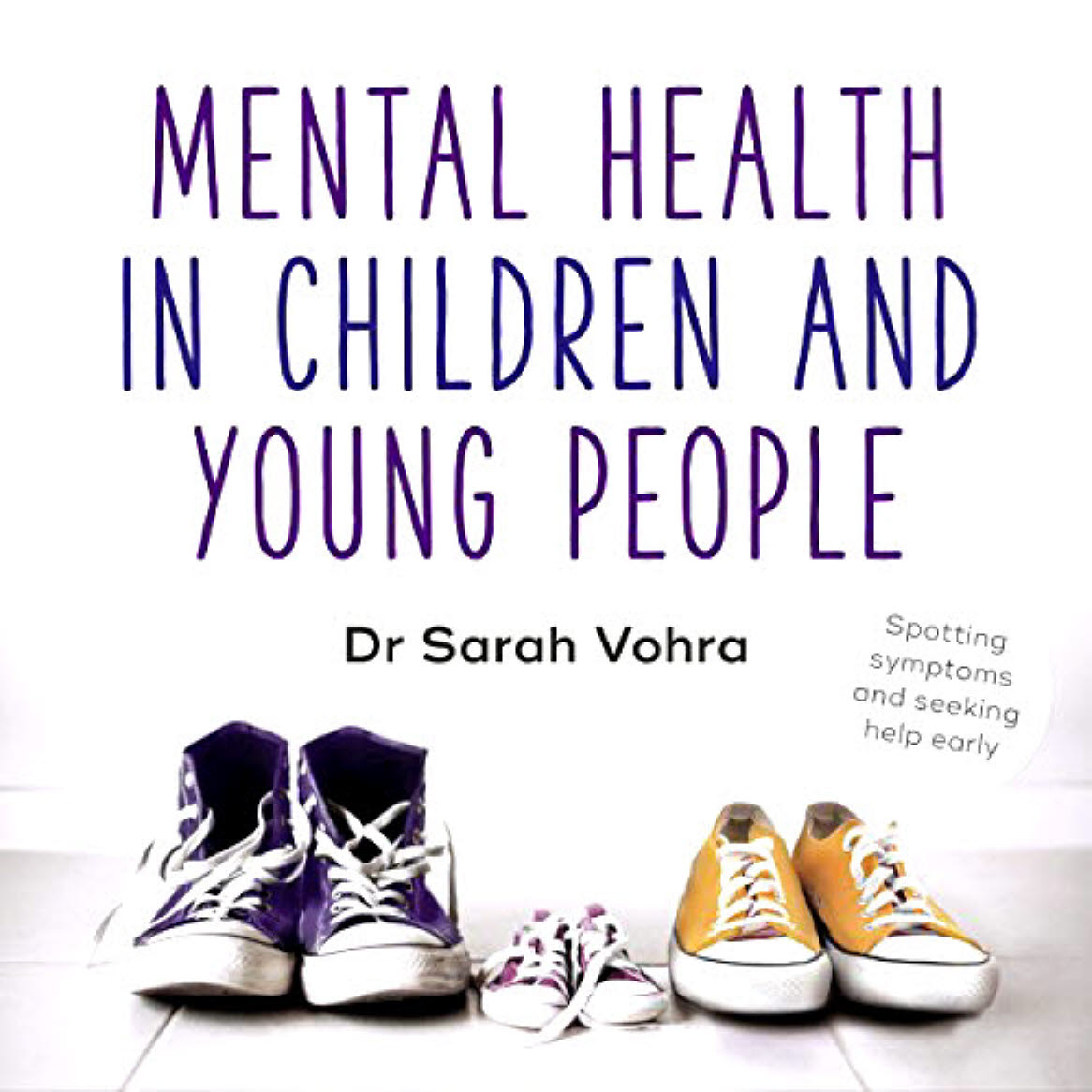
By
#SeattleTimes #MentalHealthProject engagement editor

The #MentalHealthProject is a #SeattleTimes initiative focused on covering #mental and #behavioralhealthissues. It is funded by Ballmer Group, a national organization focused on economic mobility for #children and families. The #SeattleTimes maintains editorial control over work produced by this team.
We’re two years into a #pandemic that’s been raging, and waning, and raging again. Young people in particular are struggling with the impacts: More #kids and #teens are reporting being stressed, anxious and depressed. Young #peopleofcolor can face added challenges.
That’s on top of the emotions that come with being a young person learning about yourself and the world around you.
You may start to realize you need help with your #mentalhealth.
“It takes quite a bit of courage to share something that you’re feeling. But when you let someone else in on what’s going on, it can really take off the burden and allow people to help and support,” said Olivia White, a licensed #mentalhealthcounselor associate who provides remote counseling in #Washington.
Here are some tips from experts on how to talk to the #adults in your life about #mentalhealth.
Find a trusted #adult
Taking the first step to understand your feelings and find the strength to share them is huge. Identify a trusted #adult in your life to express these emotions and talk through what you’ve been experiencing.
That may be a #parent, but it doesn’t have to be, said Dorcas Nung, a licensed marriage and family #therapist. It can be a #teacher, a #school #counselor, a coach or a friend’s #parent.
Know what you want from the conversation
Once you’ve selected someone to tell, have an idea of what you hope to get out of the conversation, said Carly Beaulieu, a licensed marriage and family therapy associate in Issaquah.
For example, do you want just to vent? Would you like to get more emotional support? Do you want to start therapy? Do you need more help at #school?
Then give a heads up to the person you want to talk to. You might reach out via a phone call or text and say, “Hey, I have something quite serious and heavy to talk about. I’m looking for you to just listen right now,” or “I’m really wanting to get this off my chest, and I’m hoping for a calm, listening ear at this point,” Beaulieu suggests.
That allows caregivers to start preparing emotionally for the conversation.
At the beginning of your conversation, state your needs and boundaries.
You can get specific and say “Don’t ask me follow-up questions. I’m going to tell you what I’m comfortable with. And if you have questions, we can talk about it later, but not when I am explaining to you what’s going on,” she said.
Sometimes it helps to write things down and bring that to the conversation, Beaulieu said. Have a script of what you want to say. That can help you organize your thoughts so you don’t lose them in the moment.
#JamesDonaldson notes:
Welcome to the “next chapter” of my life… being a voice and an advocate for #mentalhealthawarenessandsuicideprevention, especially pertaining to our younger generation of students and student-athletes.
Getting men to speak up and reach out for help and assistance is one of my passions. Us men need to not suffer in silence or drown our sorrows in alcohol, hang out at bars and strip joints, or get involved with drug use.
Having gone through a recent bout of #depression and #suicidalthoughts myself, I realize now, that I can make a huge difference in the lives of so many by sharing my story, and by sharing various resources I come across as I work in this space. #http://bit.ly/JamesMentalHealthArticle
How to find help
If you are experiencing suicidal thoughts or have concerns about someone else who may be, call the #NationalSuicidePreventionLifeline at 800-273-TALK (8255); you will be routed to a local crisis center where professionals can talk you through a risk assessment and provide resources in your community. More info: suicidepreventionlifeline.org. Or reach out to Crisis Text Line by texting HOME to 741741 for free, 24/7 crisis counseling. More info: crisistextline.org.
How to help your peers
If you have a friend who is going through something, you can help provide support . Ultimately, though, serious #mentalhealth concerns should be elevated to trusting #adults.
A young person approached by a friend can be upfront about their capacity and responsibility. Explain to a friend that you’re there to listen and support, and can offer to connect them with a counselor or #teacher.
You can also say, “Here are some of the things I can do and some of the things I can’t do because I’m a kid too. I think if you told an #adult, it would be helpful,” said Ravi Ramasamy, a #child and #adolescent #psychiatrist at Seattle Children’s hospital.
If there is an urgent safety risk, you can explain that you need to tell an #adult, he said. But if it’s not quite that significant or severe, you can set a threshold and say that if the concern reaches a certain point, this is what you will do.
Another way to phrase this is by saying “I really care about you. I think this is pretty intense, and you don’t have to do this alone. I’m your friend, and I want to help you. So I’m going to find somebody so we can all help you together,” Nung said.
Addressing #stigma
Some families may be skeptical of seeking #mentalhealthcare.
“Sometimes it’s because of lack of understanding or #stigma,” Ramasamy said. “Many people have been harmed by the healthcare system and the #mental healthcare system. And a lot of their worries are warranted.”
Some #parents may be wary of getting outside help because they want to keep matters within the family.
You are entitled to seek care if you’re interested and in need, regardless of your family’s stance.
However, you might try addressing their concerns head-on in your initial conversation.
Often, the more that families find out how much a young person is struggling, “there’s some middle ground we can reach,” Ramasamy said.
“Whatever you discuss with your #therapist or #psychiatrist is confidential. That might help families feel a little bit more comfortable,” he said.
Know your rights
In #Washingtonstate, people who are 13 years and older can seek #mentalhealthcare and receive services and treatment without the consent of a #parent or guardian.
A #child who is 13 or older can show up to an emergency room and be evaluated and admitted to a hospital even if a #parent or guardian doesn’t agree, Ramasamy said.
On the other hand, if a #child does not want to seek therapy or other treatment and he or she is 13 years or older, a #parent can’t force them into care without their consent, Beaulieu said.
Resources
Several organizations and services exist to support young people in crisis.
Even if #parents are not on board with getting help, Ramasamy said kids can call the #NationalSuicidePreventionLifeline at 800-273-8255.
#Teen Link, a program of the nonprofit Crisis Connections, provides telephone hotlines for young people, #veterans, people experiencing #mentalhealthcrises and anyone wanting help. You can reach #Teen Link by calling 866-TEENLINK or sending text messages via teenlink.org.
For young people experiencing #homelessness, resources are available.
YouthCare and Childhaven support kids in #Seattle; Friends of Youth aids kids in East King County; Cocoon House helps kids in Snohomish County.
Michelle Baruchman: mbaruchman@seattletimes.com; on Twitter: @mlbaruchman.




